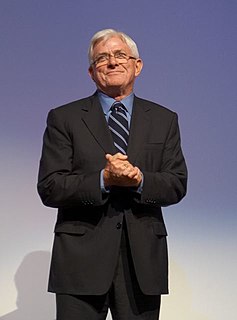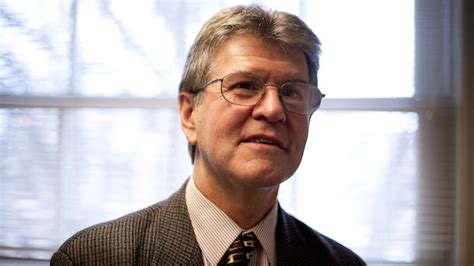A Quote by Sydney J. Harris
The difference between faith and superstition is that the first uses reason to go as far as it can, and then makes the jump; the second shuns reason entirely — which is why superstition is not the ally, but the enemy, of true religion.
Related Quotes
I think Martin Luther correctly distinguished between what he called the magisterial and ministerial uses of reason. The magisterial use of reason occurs when reason stands over and above the gospel like a magistrate and judges it on the basis of argument and evidence. The ministerial use of reason occurs when reason submits to and serves the gospel…. Should a conflict arise between the witness of the Holy Spirit to the fundamental truth of the Christian faith and beliefs based on argument and evidence, then it is the former which must take precedence over the latter.
The scarcest resource these days is reason. What's certainly striking about American culture today is the great hostility toward science and the decline of respect for rational scientific thinking. People seem to think that we are ruled by the scientific method and that we overvalue reason. If there was ever a period when we overvalued reason, I think that it was probably extremely brief. What I see now is a great deal of superstition, as much superstition as there has ever been. There are probably more people who believe in guardian angels than who understand the law of gravity.
Kant's aim was to develop a religion within the boundaries of mere reason (that is, reason unaided by special empirical revelation) and then to ask about existing ecclesiastical faith (especially about Christianity, and the Lutheran Christianity of his time and place) how this revealed faith must be interpreted if it is to be reconciled with reason, and even seen as a wider (though morally optional) extension of a religion of reason.
Science may have come a long way, but as far as religion is concerned, we are first cousins to the !Kung tribesmen of the Kalahari Desert. Except for the garments, their deep religious trances might just as well be happening at a revival meeting or in the congregation of a fundamentalist TV preacher.... As we move further from the life of ignorance and superstition in which religion has its roots, we seem to need it more and more.... Why has religion become a force just when we'd have thought it would be losing ground to secularism?

































